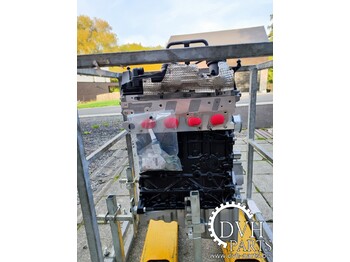Essential Factors To Consider and Tips for Choosing the Right Engine for Your Demands
Picking the right engine is a multifaceted choice that requires mindful factor to consider of different variables to guarantee optimum efficiency for your specific requirements. The ins and outs of engine option extend beyond these basics, motivating a better exam of vital aspects that can ultimately impact your contentment and success.
Determine Your Function
Identifying your purpose is an important very first step in picking the right engine for your requirements. Comprehending the specific application you want will guide your decision-making process and make certain that you select an engine that lines up with your functional needs. Whether you need an engine for a business lorry, industrial equipment, or an entertainment task, each scenario demands various performance characteristics and capacities.
Consider the environment in which the engine will operate. Will it undergo hefty lots, severe temperatures, or extended use? Assessing these aspects will aid you identify the required power result, fuel effectiveness, and resilience required to meet your objectives.
In addition, think of the lasting ramifications of your selection. Budget plan restrictions, maintenance needs, and availability of components are important considerations that will certainly influence your general contentment and functional effectiveness.
Eventually, articulating your function will simplify the option procedure and equip you to make an informed choice. By clearly defining your objectives, you can review potential engines extra successfully and choose one that not just meets your existing demands however additionally supports your future objectives.
Evaluate Engine Specs
When you have actually clearly verbalized your purpose, the following action is to review engine requirements. This procedure includes a complete evaluation of various technical details that can considerably influence efficiency and suitability for your planned usage.
Begin by analyzing the engine's horse power and torque ratings. Horse power is crucial for determining the engine's ability to perform work, while torque is necessary for recognizing how well it can handle hefty lots or acceleration. In addition, think about the engine displacement, as it commonly associates with power result and efficiency.
Next, examine the engine typeâEUR" whether it is a gas, diesel, or different gas engineâEUR" as each kind has distinctive features and applications. Take notice of the engine's setup (e.g., inline, V-type), as this can affect size, weight, and general performance.
One more crucial element is the engine's air conditioning system, which can affect reliability and upkeep demands. Finally, review the maker's track record and warranty offerings, as these can offer insights right into lasting performance and assistance. Extensively evaluating these specifications will certainly aid ensure that you select an engine that lines up with your certain needs and operational goals.
Consider Fuel Effectiveness
Gas performance is an important factor to think about when selecting an engine, as it straight influences functional expenses and ecological sustainability. An engine's gas effectiveness is typically determined in miles per gallon (MPG) for vehicles or in certain fuel consumption (SFC) for aircraft and marine engines. Greater fuel efficiency not only decreases the quantity of gas eaten but also minimizes greenhouse gas emissions, making it an accountable choice for eco-conscious customers.
When assessing engine alternatives, it is vital to examine the driving problems and planned use. Engines optimized for freeway driving may display much better fuel effectiveness contrasted to those created for stop-and-go website traffic. Additionally, consider the engine's modern technology, such as turbocharging or hybrid systems, which can dramatically improve fuel performance.

Assess Upkeep Demands

Some engines may require even more constant oil adjustments, filter substitutes, or specialized servicing, which can impact your operational downtime. Engines with prevalent popularity usually have better parts schedule, reducing lead times throughout repair services.
One more crucial facet is the technical experience check that required for maintenance. Some engines may necessitate customized training for specialists, which might restrict your alternatives for provider. In addition, examine whether the engine's layout allows for simple accessibility to components typically requiring upkeep, as this can substantially impact labor prices.
Budget Your Financial Investment
Recognizing upkeep requirements is simply one element of choosing the ideal engine; financial factors to consider play a just as essential function (amarok engine for sale). Establishing a clear budget plan is essential, as it affects not only the first purchase cost but additionally long-lasting operational costs
When budgeting, think about both the upfront prices and continuous costs such as gas performance, maintenance, and possible repair work. A relatively economical engine might incur greater expenses with time as a result of inadequate gas economy or frequent maintenance demands. Additionally, examine the schedule and price of spare parts, along with the warranties provided by manufacturers, which can offer financial security against unpredicted expenses.
It is additionally wise to element in possible funding alternatives or leasing arrangements, which might relieve prompt financial concerns. Balance your wish for innovative attributes with your budget restraints, making certain that you buy an engine that fulfills your performance needs without compromising financial security.
Eventually, a well-rounded budget will certainly empower you to make educated choices, aligning your engine choice with both your operational needs and monetary capacities, bring about a more lasting investment over time.

Verdict
In final thought, selecting the proper engine requires a detailed understanding of details demands and applications. Cautious analysis of engine specifications, fuel effectiveness, and upkeep needs is crucial for educated decision-making.
Gas efficiency is a critical aspect to think about when choosing an engine, look these up as it straight influences operational expenses and environmental sustainability. An engine's gas effectiveness is typically measured in miles per gallon (MPG) for click here to find out more lorries or in details gas usage (SFC) for aircraft and aquatic engines. Diesel engines usually provide better gas efficiency than gas engines. Ultimately, selecting an engine with a solid emphasis on fuel performance can lead to substantial lasting financial savings and add favorably to environmental efforts. Careful analysis of engine requirements, fuel efficiency, and upkeep demands is important for educated decision-making.